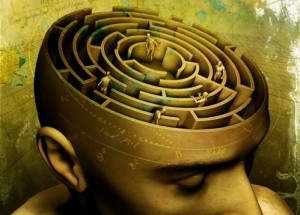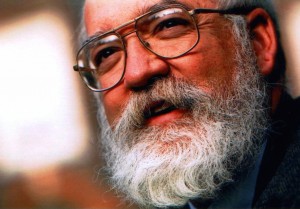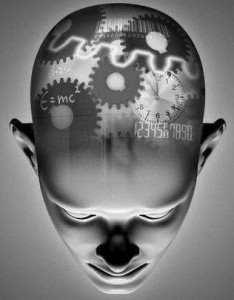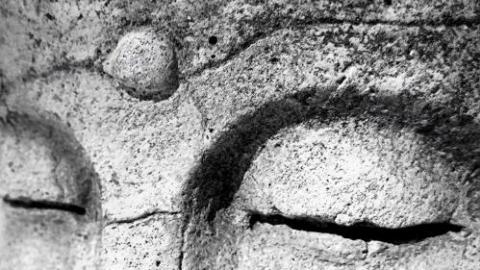As hard as it is to emotionally perceive, one’s country is not the world; the world is not man; man is not humanity; and humanity is not the universe.
 Most people are stuck at the first level, and don’t go beyond tribal identification with ‘my country.’ Some people are stuck at the second level, and don’t see beyond their own time. Many are stuck at the third level, and don’t go beyond the dying species of ‘man.’
Most people are stuck at the first level, and don’t go beyond tribal identification with ‘my country.’ Some people are stuck at the second level, and don’t see beyond their own time. Many are stuck at the third level, and don’t go beyond the dying species of ‘man.’
But those that reach the fourth level don’t remain there for long. They are prepared to physically die, because they’re psychologically dying to attachment.
Not to go all Buddhist on you (especially since I’m not one), but Siddhartha was right about attachment lying at the root of suffering. If you look up the word ‘attachment’ there are two meanings–either “add-on” (which fits), or ‘affection’ (which doesn’t).
Attachment really refers to any form of clinging, and clinging, in one form or another, is what we do as humans.
As for me, I left the first level—identification with country–a long time ago, but have generally been stuck at the second, with short furloughs beyond the fourth. The second level is synonymous with over-concern with the world and attachment to this lifetime.
Speaking of reincarnation, we do get more than one chance to learn, but we don’t get an infinite number of times to change course, as individuals or a species. Though reincarnation is a fact, it isn’t the truth, and it affords neither complacency nor indifference. We have only one life at a time, and only one life of which we can be sure—this one.
Some people who have had near-death experiences are shown ‘heaven,’ and yanked back to hell on earth. Some people are shown hell, and come back to redemption on earth. It all comes down to what we do with our lives, whether we’ve  had near-death experiences or not.
had near-death experiences or not.
One of the leading pop-philosophers of atheism, Daniel Dennett, quoting another pop philosopher, Dilbert, self-assuredly says, “human beings are moist robots.” Any philosopher who propagates such nonsense should be replaced by a robot as soon as possible.
Essentially, there are two kinds of atheists. There are those who hack at the straw man of religious belief; and there are those who close out the question of God rather than keep it open. I don’t know which is worse. The former are disingenuous; the latter aren’t philosophers at all.
“Clinging to the idea that the mind is more than just the brain,” Daniel Dennett says, is “profoundly naïve and anti-scientific.” Spoken like a man that’s never truly attended to the movement of thought in his own head. How can such a man call himself a philosopher?
Dennett cheerfully insists that both free will and consciousness are empirically solvable problems. Free will may be an oxymoron, but consciousness depends on how you define and experience it.
If you define the mind as a “collection of computer-like information processes, which happen to take place in carbon-based rather than silicon-based hardware,” then the closed loop becomes a self-fulfilling prophecy becomes a vicious circle.
 I don’t know which level Dennett is stuck at, but he extols hell quite well. On the other hand, if the mind is what awakens in the brain when the entire mechanism of thought is attentively quiet, then consciousness isn’t merely memory-based associations and reactions, but something qualitatively different.
I don’t know which level Dennett is stuck at, but he extols hell quite well. On the other hand, if the mind is what awakens in the brain when the entire mechanism of thought is attentively quiet, then consciousness isn’t merely memory-based associations and reactions, but something qualitatively different.
And if that’s true, then human beings aren’t just “moist robots” that programmers and engineers are now replicating with silicon.
In other words, beyond a point, silicon is the Rubicon for humankind. We urgently need to find out whether that’s all we are, as Dennett darkly says, or something essentially, existentially and potentially very different.
It’s not a matter of ‘clinging to the idea that the mind is more than just the brain.’ That’s a cunning way of clinging to the idea that the brain is no more than the mind.
It’s a matter of leaving the question open, which is what philosophers and human beings worthy of the names do.
To grow in the capacity for love, though one’s time has become a dark age and the world has gone to hell, isn’t saintliness; it’s survival.
Martin LeFevre

